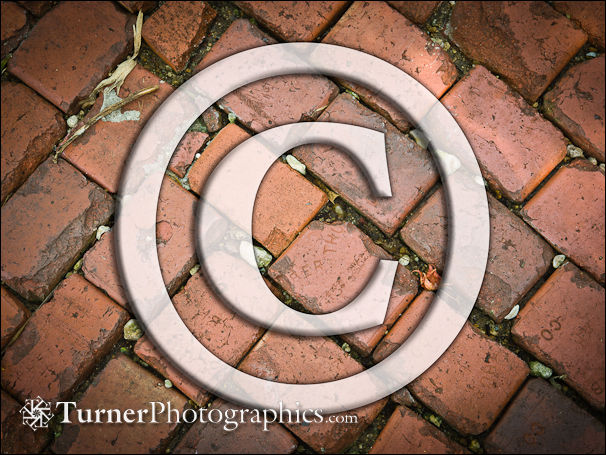Respecting Copyright

I got a call from the owner of a local photo lab recently asking whether one of my customers had permission for them to make 50 prints of one of my photographs to enclose in their holiday cards. In this case the answer was “No.” As part of the package they’d purchased they received a low-resolution digital file to share with friends and family by e-mail or on social networking sites like Facebook. The file had my visible watermark across the bottom. This customer had not exercised their option to purchase a high-res file with printing rights.
Many people have come to assume that having a copy of a photograph means then can do whatever they want with it, including making more copies. Since 1976 US copyright law has made it clear that a creator owns the copyright in their work. As a photographer I may sell you prints of a portrait of your family or license reproduction rights to a garden or landscape photo to a magazine. The rights granted with each payment are limited. Think of it like renting a car. The rental company charges you each time you want to rent one of their cars, and it costs more to rent for three days than for one day.
Copyright in intellectual property, including photography, music, movies, and books is under a lot of pressure these days. I fight with my kids about downloading music, movies, and TV shows from the net without paying for them. It’s a tough battle, but I think it’s important that they understand the value of intellectual property.
When I provide photography for you I want you to have the rights you need, at a fair price. If you need something more than you initially purchased, let’s talk about it.


Hi Mark- Great article on copywrite! It is one of the most poorly understood rights a creator of any property has and one that must be honored if anyone needs to make a living from creative imaging of any sort from fine art to video to photography to written word. Good for you for defending your rights. And shame on those who tried to infringe on it.
Linda
Thanks, Linda. Copyright (note spelling) law encourages the creation of new and original works. The duration has been extended dramatically in recent decades in large part to protect Disney cartoons, but the rest of us benefit, too. It used to be difficult to copy someone’s work, but digital media has made that easy. The “free” environment of the web has further eroded respect for copyright. It’s tough, but if we don’t enforce it, copyright will disappear.